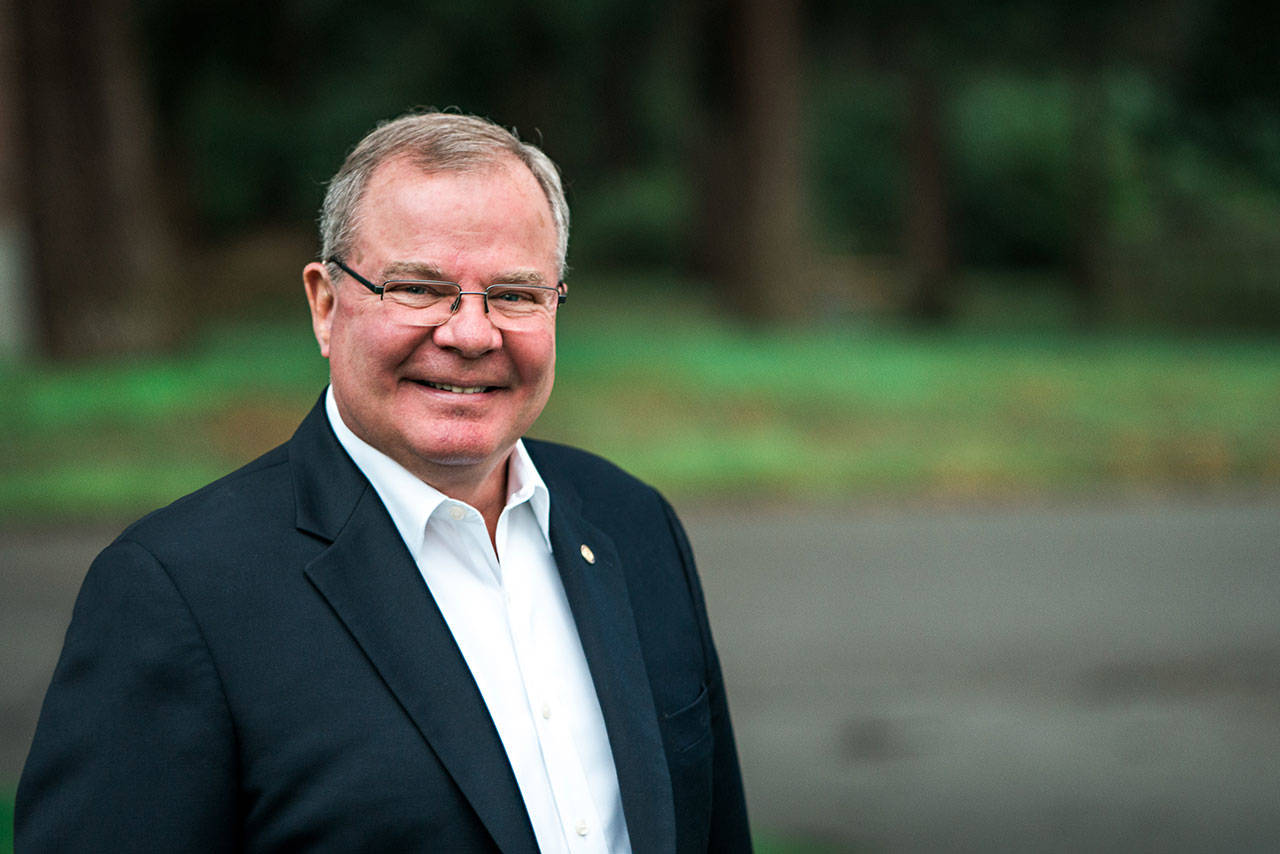Jim McEntire, a Republican challenger for state representative of the 24th Legislative District, says he has two basic goals to accomplish if elected: building the economy in rural Washington, and limiting tax increases.
Although he’s retired, this isn’t McEntire’s first foray into politics. He previously served as a Clallam County Commissioner, and as a commissioner for the Port of Port Angeles. A former Coast Guard captain who was stationed in Washington, D.C., he currently lives north of Sequim with his wife.
If elected over the incumbent Steve Tharinger, a Democrat, McEntire said he’d focus on ensuring that rural Washington — in areas like much of the 24th District — get more attention when it comes to state policies.
“I’m not sure the Legislature pays enough attention to the unique policy needs of rural Washington,” said McEntire at a candidate forum in Ocean Shores last week. “We’re different than urban Washington of course, and I don’t think that distinction gets made well enough in Olympia.”
The 24th District includes Hoquiam, northern parts of East Grays Harbor and all of Jefferson and Clallam counties.
His other main priority is resisting tax increases, McEntire said.
“I don’t want taxes to go up. So many of us are on fixed incomes, or working families, the median household income is pretty low compared to the rest of the state,” he said. “More taxes make it very hard for families to afford everything.”
Following the Ocean Shores forum, McEntire pointed to school funding as one area he wants to improve on. He said that a “far higher percentage” of the state’s capital budget spending should go toward helping school districts, and complained about the state’s current formula for funding assistance on building projects.
“The way the formula works right now, you have to have a voter-approved bond levy before you can be eligible for state construction assistance,” said McEntire. “That’s just backwards. Rural school districts are, generally speaking, property poor, and it’s much harder to pass a bond levy.”
He also spoke about the McCleary decision in a lawsuit that forced the Legislature to develop a new school funding formula that fulfills the state’s duty to fund what it considers basic education for grades K-12 — and said the state should also be required to fund construction.
“The practical part, the constitutional part, is if K-12 education is the paramount duty of the state, it doesn’t stop with teachers and textbooks,” he said. “The state really needs to fund the schoolhouse also.”
On the issue of homelessness — which is rampant on Grays Harbor — McEntire believes that strengthening the local economy and adding jobs can assist with that as well.
“If you lose a job and you’re living paycheck to paycheck, and if it takes three months to find a new job, you’re on the bubble as far as not having a place to live or not being able to pay your rent,” he said. “A growing economy and more money in household budgets solves a lot of problems.”
McEntire went on to say that a lot of the state’s funding for housing assistance goes to more urban areas instead of rural Washington, and said money for affordable housing would go further in rural areas.
“The capital budget pays for housing for the destitute, for the disabled, and a lot of that goes into the high-cost areas like Seattle,” said McEntire. “The problem is acute no matter where you look, but construction dollars go a lot further in rural Washington simply because it costs a little less to build structures out here.”
Since moving from Washington, D.C., to Washington State, McEntire said that now he “wouldn’t even think” of living anywhere else, and that if he’s elected, he would make it a priority to help the common people of the district.
“To sum it up, I’m going to put people first,” he said. “The environment is great, we have to protect it. But the reason you go to Olympia is to help people, to solve problems, to try and do what you can to make peoples’ lives better.”



